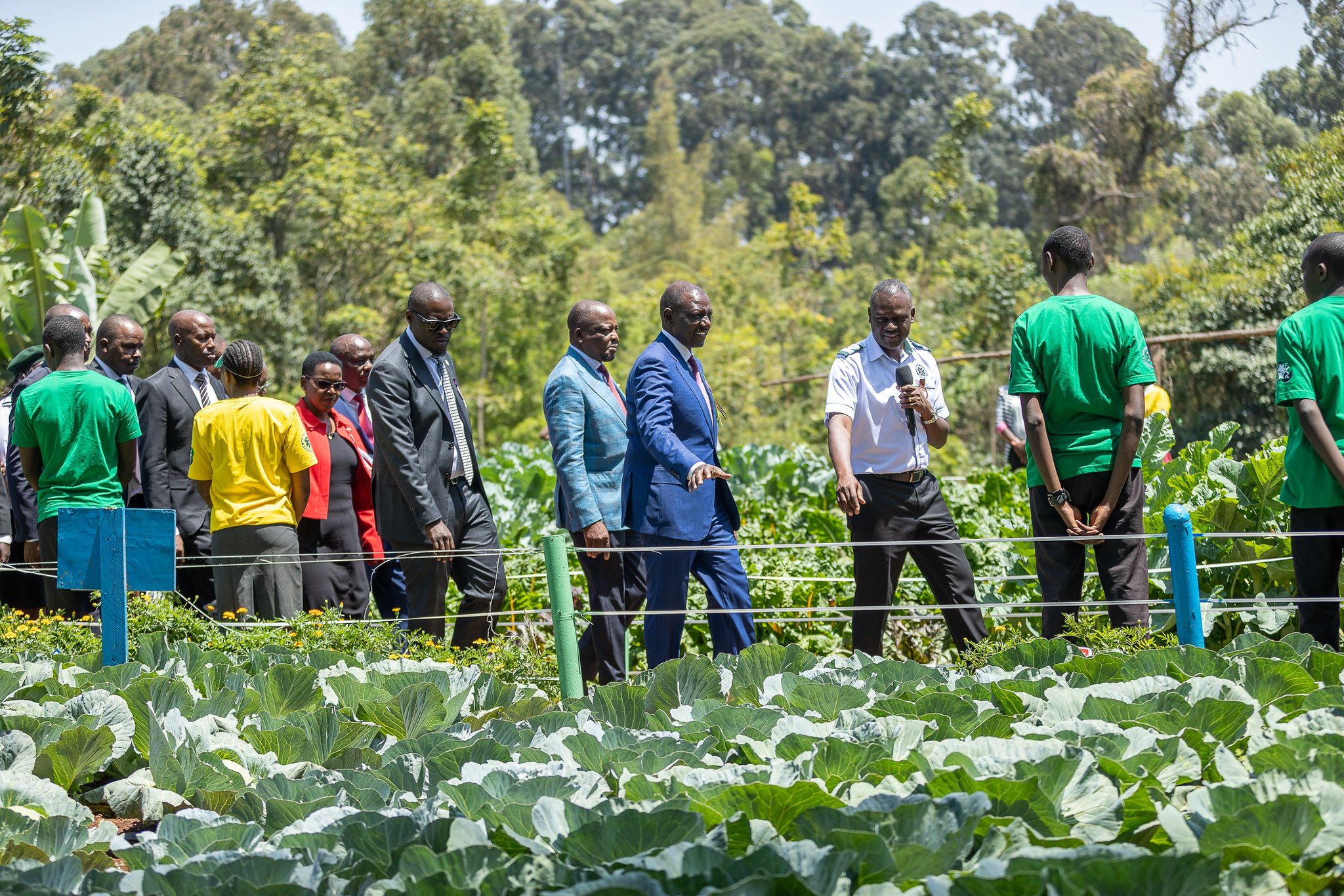
 President William Ruto with Nairobi Governor Johnson Sakaja and other leaders at the Jamhuri showground on October 1, 2025/PCS
President William Ruto with Nairobi Governor Johnson Sakaja and other leaders at the Jamhuri showground on October 1, 2025/PCS
President William Ruto has announced that the Kenya Development Corporation (KDC) has secured a Sh3.7 billion concessionary loan to support KTDA farmers.
Ruto who spoke when he officially opened the 2025 Nairobi International Trade Fair at Jamhuri Park Grounds said the funds will help modernise equipment in smallholder tea factories.
“These funds will reduce production costs, and diversify into Orthodox teas to address the global glut in Black Crush Tear Curl (CTC),” he said.
“Affordable credit is critical to transforming agriculture into a high-value, job-creating sector,” he added.
Ruto also urged an end to the export of raw agricultural products, calling for aggressive investment in value addition and agro-processing to transform the country’s agricultural sector.
He stated that value-added manufacturing is key to increasing farmer incomes, creating jobs, and accelerating economic growth.
“For decades, we have exported tea, coffee, livestock, minerals, cotton, hides and skins, and even fish in raw form, only to import them back as finished products at higher prices,” he said.
He noted that this model denies farmers and entrepreneurs full value for their work.
According to the President, the government is committed to reversing this trend through special economic zones, County Aggregation and Industrial Parks (CAIPs), and common user facilities aimed at enhancing local production and processing capacity.
“Value addition is not just an economic strategy. It is the pathway to prosperity for all stakeholders across the value chain,” he said.
To increase value-added tea exports from 5 per cent to at least 50 per cent, the government is partnering with the private sector to set up processing facilities in Kericho, Nairobi, and Mombasa.
Additionally, CAIPs are being built in all 47 counties to serve as hubs where farmers can access cold storage, processing facilities, and direct market links, both local and international.
Ruto highlighted that this strategy will reduce post-harvest losses, eliminate exploitative middlemen, lower logistics costs, and improve farmer earnings.
However, he noted that access to larger markets is also vital.
Kenya has secured trade agreements with blocs and countries including the African Continental Free Trade Area (AfCFTA), the EU, China, and the UAE, opening up markets of over 3 billion consumers.
Ruto said the country’s transformation spans multiple sectors, including tea, maize, dairy, health, leather, and affordable housing.
Reforms are also underway in agriculture and trade, which he called the "twin turbo-engines" of Kenya’s prosperity.
He cited progress from the registration of 7.1 million farmers for targeted support, reduction in input costs, and investments in value addition.
These reforms, he said, are improving productivity, reducing losses, and connecting farmers to better markets.
Ruto also announced that 12.5 million bags of fertiliser will be distributed in the 2026 seasons, adding to the 4.5 million already procured.
Maize production has hit a record 67 million bags in 2024, with a 70 million bag harvest expected this year with imports having fallen by 70 per cent.












